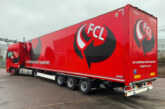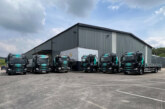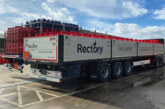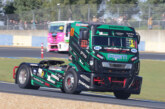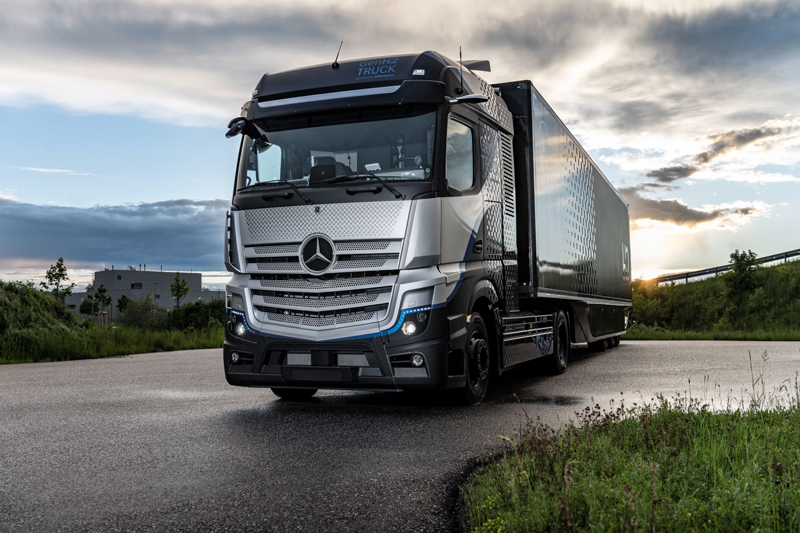
Daimler Trucks has announced it will be focusing on hydrogen-powered fuel-cells for the electrification of its vehicles for flexible and demanding long-haul transport.
The company hopes to achieve ranges of up to 1,000 kilometres and more without any stops for refuelling. In late April, the truck manufacturer began to conduct tests of the first prototype of its Mercedes-Benz GenH2 Truck, which was unveiled in 2020. This marks an important milestone on the path to series production. During these tests, the developers at Daimler Trucks put the fuel-cell vehicle through its paces. The series of tests is very demanding for the vehicle and its components, and focuses, among other things, on continuous operation, different weather and road conditions, and various driving manoeuvres.
According to Daimler Trucks’ development plan, the vehicle will also be tested on public roads before the end of the year. Customer trials are scheduled to begin in 2023. The first series-produced GenH2 Trucks are expected to be handed over to customers starting in 2027.
Martin Daum, Chairman of the Board of Management of Daimler Truck AG and Member of the Board of Management of Daimler AG, explained: “We are consistently pursuing our technology strategy for the electrification of our trucks. We want to offer our customers the best locally CO2-neutral trucks — powered by either batteries or hydrogen-based fuel-cells, depending on the use case. We’re right on schedule and I’m delighted that the rigorous tests of the GenH2 Truck have started successfully.
“The hydrogen-powered fuel-cell drive will become indispensable for CO2-neutral long-haul road transport in the future. This is also confirmed by our many partners with whom we are working together at full steam to put this technology on the road in series-production vehicles. Moreover, considerable momentum is being generated by the clear commitment of national and European regulators to the use of hydrogen for road freight transport. Political support plays an important role in promoting the creation of an infrastructure for green hydrogen and making an economically viable use of fuel-cell trucks possible for our customers.”

